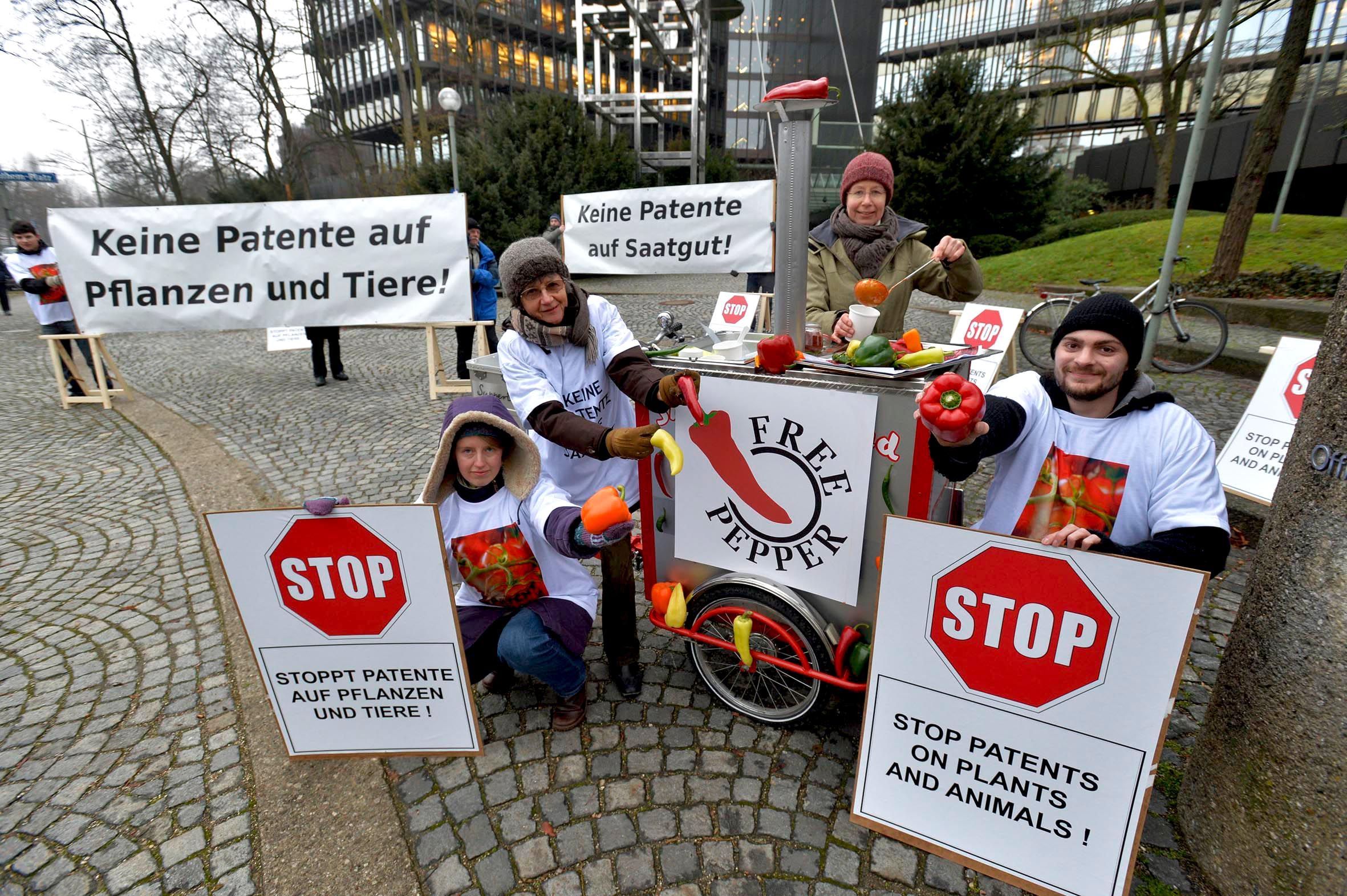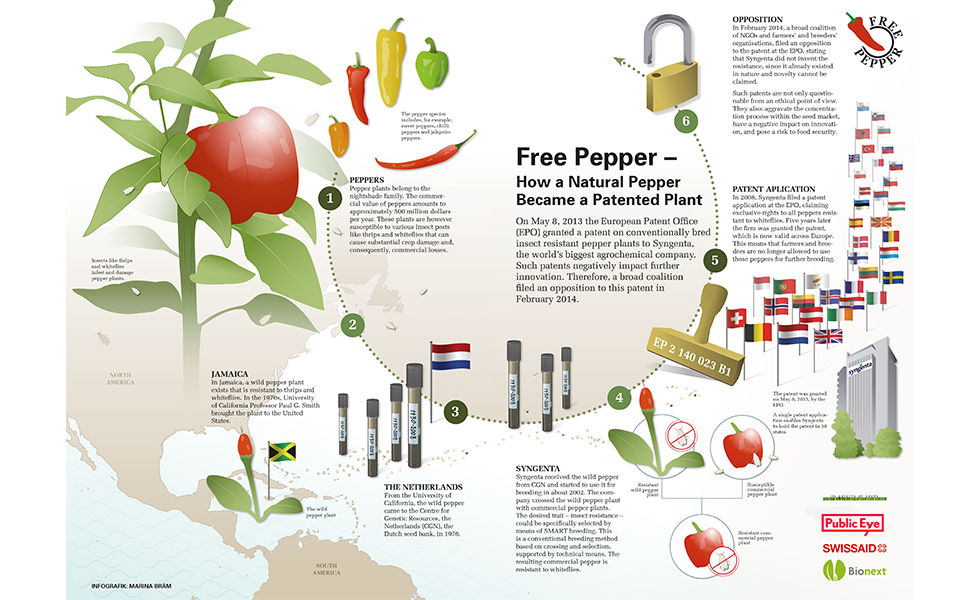Free Pepper - No to Syngenta’s Patent on Peppers
 ©
[Translate to English:]
©
[Translate to English:]
The Basel-based agrochemical company patented a form of insect resistance which they copied from a wild pepper. The formal opposition is against a patent granted by the European Patent Office (EPO) in May 2013 providing Syngenta with exclusive rights to whitefly-resistant peppers. Legally binding in many European countries, it means that other breeders are no longer allowed to freely use these plants for their own breeding. However, since this specific resistance is merely the result of a cross from a wild Jamaican variety into a commercial pepper plant, its opponents did not consider that this should be recognised as an invention of Syngenta.

![[Translate to English:]](https://img.publiceye.ch/9gmxHiB9Dq62JO8t2ebQRqEftLBuazvuL8G7J1lRmu0/rt:fit/cb:49b5bd587c0edae795baee1e47ae52feeacc8d03/plain/https://www.publiceye.ch/fileadmin/img/Saatgut/NoPatentsOnSeeds.JPG) ©
[Translate to English:]
©
[Translate to English:]
It is the first time that a coalition so diverse in content and geography has raised such significant opposition to the privatisation of natural resources. Patents on plants based on conventional breeding are not only ethically questionable. They also increase concentration in the seed market, hindering innovation and thus representing a risk in terms of our food security.
For years, NGOs, the European Parliament as well as breeders' and farmers' associations have opposed the granting of such patents. In April 2020, the Enlarged Board of Appeal of the European Patent Office responded to the pressure and took a historical decision: that plants and animals from "essentially biological" breeding processes are not patentable.
However, the issue is not entirely off the table, as cunning patent attorneys keep finding new loopholes to circumvent the ban. Therefore, a final and effective ban on patents on conventionally bred plants requires clear political guidelines from member states of the European Patent Convention, including Switzerland.

